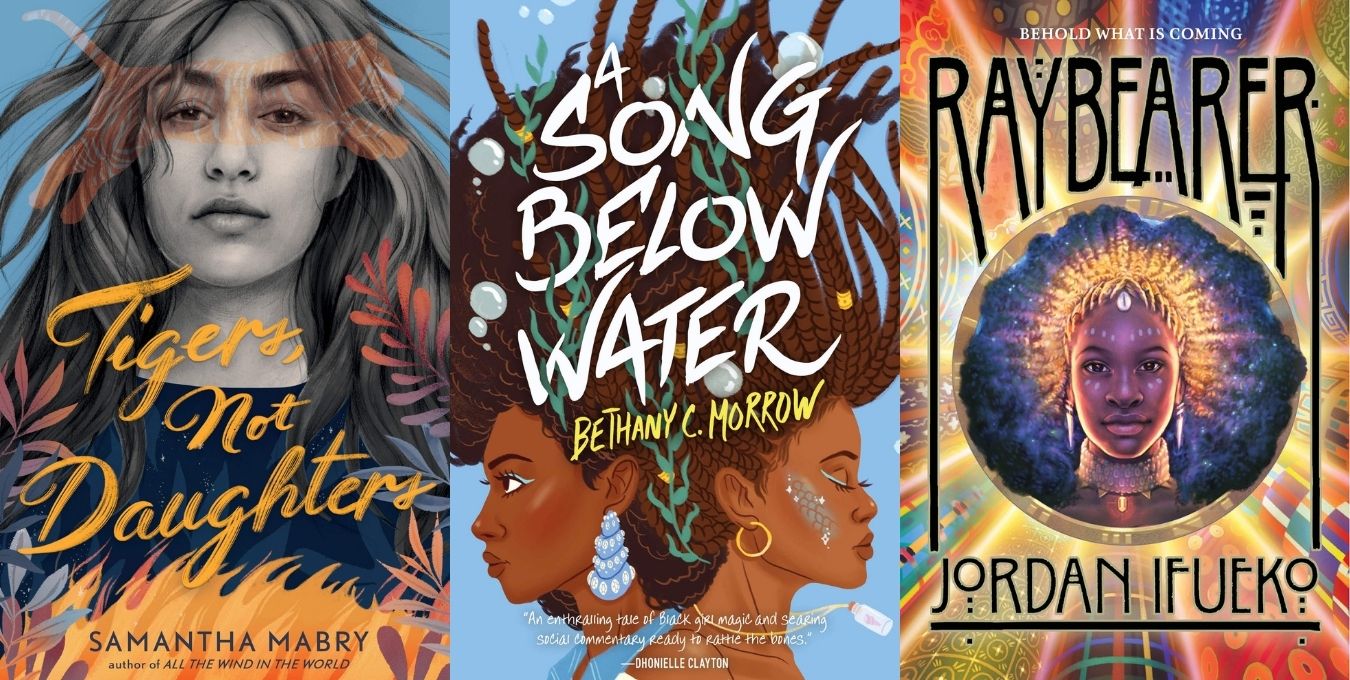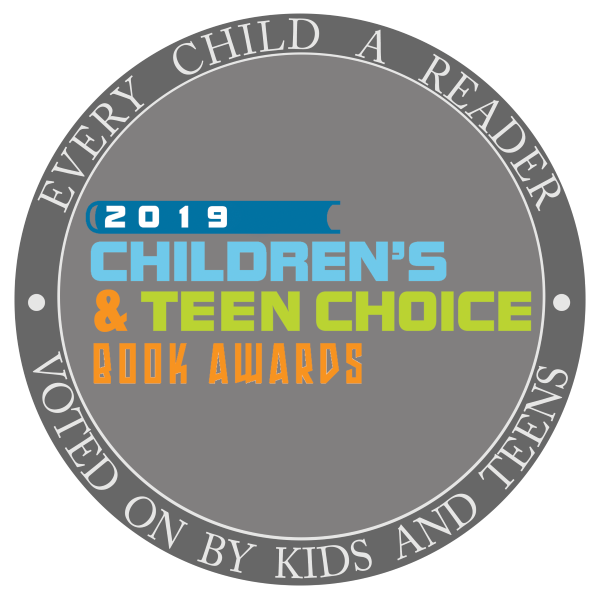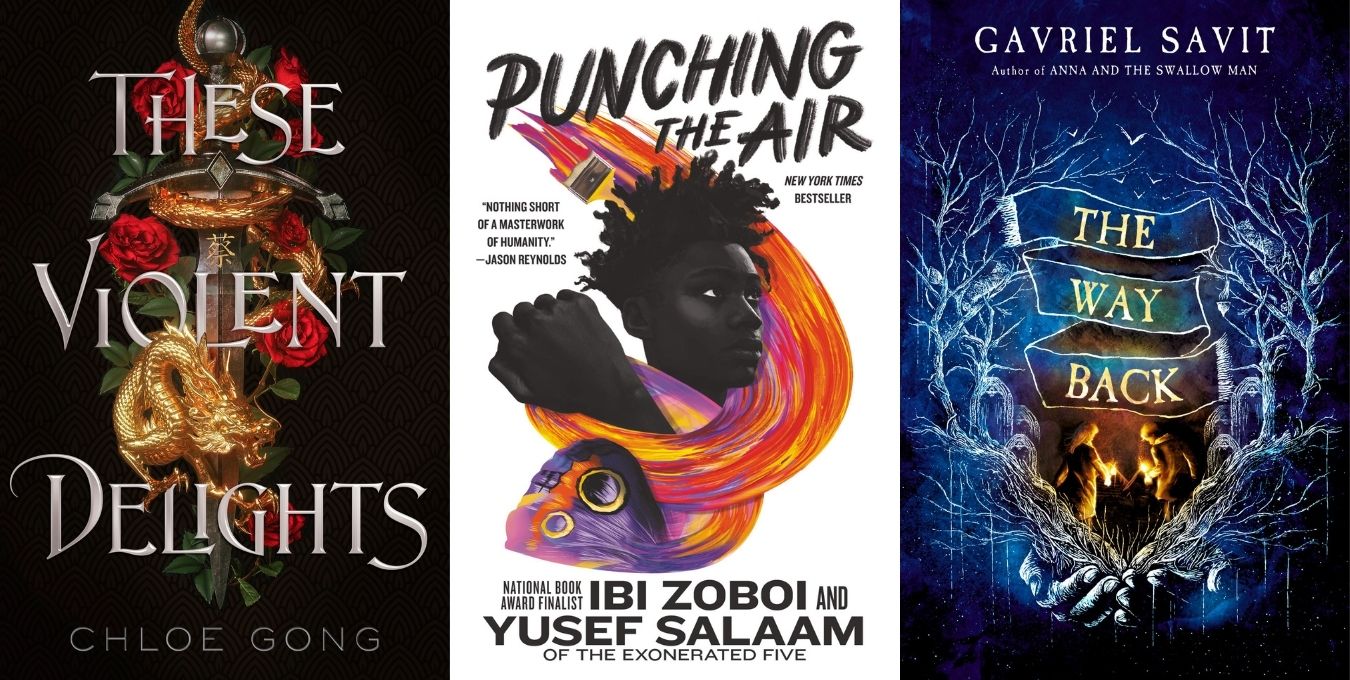Keeper
I liked THE UNDERNEATH quite a bit, but I found the resolution of the stories vaguely unsatisfying. HOLES, THE TALE OF DESPEREAUX, and AMERICAN BORN CHINESE have set the bar pretty high for these kind of stories, and I just felt like something about the ending was a little bit off. Maybe a second reading would have resolved some of my concerns, but I doubt I could have supported it over THE GRAVEYARD BOOK or THE LINCOLNS. Still, it was a good choice as an honor book.
So I looked forward to reading KEEPER when it was published this past spring. Let me say that this is not my kind of book at all, and yet it completely won me over. You kind of have to respect a book that can do that.
ADVERTISEMENT
ADVERTISEMENT
First, the plotting is molasses-slow, and you’ll remember that I railed against THE EVOLUTION OF CALPURNIA TATE for the same thing, but whereas I did not find the writing style of that book particularly distinguished, I quickly fell under the mesmerizing spell of the narrative voice here. I fell in love with the characters, became enchanted by the setting, and really warmed up to the mythical and folkloric elements of the story. I still think the book is too long, and will limit the child audience, but when I was in the story I just couldn’t help myself.
Second, there is a subgenre of children’s literature which is especially prone to Newbery recognition, and while many of these books are very good–some are even favorites of mine–you sort of have to wonder when the well will run dry. Let me list some of these books and see if you can guess what I’m talking about: MISSING MAY, WALK TWO MOONS, BELLE PRATER’S BOY, BECAUSE OF WINN-DIXIE, and THE HIGHER POWER OF LUCKY. What do they all have in common? The main characters (mostly girls) are still grieving and coping with the loss or absence of a mother figure. This year, I note three books–KEEPER, ONE CRAZY SUMMER, and WHAT HAPPENED ON FOX STREET–that are variations on this theme and–surprise!–all three have been mentioned as strong Newbery contenders. How many missing mother books do we have to admit into the Newbery canon before the committee realizes it’s the same old, same old? Sheesh.
And yet so great is the pull of KEEPER that, again, I couldn’t have cared less when I was in the story. While my other top picks–A CONSPIRACY OF KINGS and SUGAR CHANGED THE WORLD–are unconventional Newbery choices and will be very difficult to build consensus around, perhaps KEEPER, being middle grade fiction, will stand a better chance. What do you think?
Filed under: Uncategorized
About Jonathan Hunt
Jonathan Hunt is the Coordinator of Library Media Services at the San Diego County Office of Education. He served on the 2006 Newbery committee, and has also judged the Caldecott Medal, the Printz Award, the Boston Globe-Horn Book Awards, and the Los Angeles Times Book Prize. You can reach him at hunt_yellow@yahoo.com
ADVERTISEMENT
ADVERTISEMENT
SLJ Blog Network
The Moral Dilemma of THE MONSTER AT THE END OF THIS BOOK
Cover Reveal and Q&A: The One and Only Googoosh with Azadeh Westergaard
Winnie-The-Pooh | Review
Parsing Religion in Public Schools
ADVERTISEMENT









I was a big fan of THE UNDERNEATH, but suspect that KEEPER (which I like too) is more accessible. As for mothers, come on — as the most significant person in a kid’s life, why shouldn’t that trope be used over and over? How it is used and what is around it is all that matter. I mean, think about the argument that there are only a handful of plots in the world? Besides, Kathi Appelt goes for supernatural mothers — that has to count higher, right?:)
(n.b.I think you mean CoK rather than KoA, right?)
Oops. Did I say THE KING OF ATTOLIA? Of course, I mean A CONSPIRACY OF KINGS. Well, the trope should absolutely be used over and over, but that doesn’t mean we have to fall to pieces every time we read it, that doesn’t mean it has to win the Newbery over and over again. Could you lump BUD, NOT BUDDY in this group? Probably, although I don’t think Bud or Woodrow wallow in their grief quite the way the girls do. Then, too, just about every book in that list has a Southern or country voice. If you can write in a Southern voice and throw in a dead mother then your two thirds of the way to a Newbery!
I also hasten to add that just as there is nothing in the Newbery criteria that requires a book to “stand alone” so, too, there is nothing that says a trope cannot be used again and again. Heck, we could see all three of those books–KEEPER, ONE CRAZY SUMMER, FOX STREET–recognized this year. I was merely expressing this as a personal bias, making the point that I liked KEEPER so much that it overcame my own personal bias.
Dead moms have a definite lead over dead dads this year, though there are a couple notable exceptions (Tortilla Summer, etc.). I agree that Keeper may have a stronger chance at Newbery gold than The Underneath did. I’d be interested in hearing how this book is received where it’s read aloud in classes. *cough cough* Monica *cough*
It’s on the shortlist, Betsy:)
I wouldn’t put One Crazy Summer in that category at all, because the girls were pretty happy with their lives until they were forced to coexist with their mother for the summer, and then their problems were in having to deal with her and how she didn’t act like they expected a mother to act.
To be sure, ONE CRAZY SUMMER lacks the Southern voice and the literally missing/dead mother, but I still think of it being a kindred spirit to the other books. The mother in this book is absent from their life prior to the story, and–ironically–still absent once they come to visit her, and I think a large segment of the book is about the mother/daughter baggage. But I can appreciate that categorization will be problematic for some people.
While I found Keeper charming and kind of cozy, I missed the overwhelming dread that kept me reading through silted lids in The Underneath. I don’t know what’s wrong with me that a 10-year-old on the open sea, with nothing but a hound, a rakish seagull, in a minuscule dinghy didn’t feel me with horror. It was sadly lacking in ancient alligators.
On another note I was contemplating if I might bring success and riches to my children if I were to move them to Mississippi and then proceed to kick off?
DaNae, I didn’t feel dread/horror, but I *did* feel like there was a chance she could have been swept out to sea and end up in a different story. She was so sure she’d find her mother in the water; cynical reader I, I thought I knew better (i.e, there’s no such thing as mermaids). But fantastical creatures (e.g., sort-of-mermen, and gay ones at that) do exist within this world, incorporated into the tale in an utterly convincing–often heartbreaking–way (like in The Higher Power of Lucky, some of these characters are just so profoundly, achingly *sad*). I loved how off-my-footing I felt while reading–I was never sure whether this was fantasy, realism, magical realism, and which characters knew what about their environs. For me, the story very effectively upended expectations without being too cutesy about it.
I haven’t read The Underneath but heard wonderful things so I was looking forward to Keeper despite the cover reminding me of Life of Pi for some reason. I was quickly drawn into the story and really wanted to know how Keeper would solve her problems. I thought it would be predictable but was not prepared for the remembrance of her mother’s actions. I cannot wait to see what the club kids have to say.
I am currently reading KEEPER to my 5th grade class, kicking off our own version of a Mock Newbery. We will hopefully be able to read 4-5 books by January, discuss them, and pick a favorite. I have a few questions for you bloggers though . . .
1. I have not read KEEPER. I am reading it for the first time along with my class. This way we can do some thinking together and I can better model my own thinking for them. I do realize that there are some interesting situations coming in the book though. For instance, I’ve heard that it is inferred but not clearly spelled out, that one of the male characters is gay. How is this approached in the book? Is it simply inferred or is this character and their liking of men dwelled upon? I’m not really worried about it and I feel that I can handle explaining it and describing it when it comes . . . but am I being naive? Am I in over my head? I’ve heard this is more kid-friendly than THE UNDERNEATH and I’ve read the latter to my 5th graders for two years running. It’s been a favorite each year!
2. I’m planning on reading to my class a wide range of possible contenders this year, so that when the winners are announced, they will hopefully mean something to them. After KEEPER, I want to read ONE CRAZY SUMMER. I also would like to read them THE BONESHAKER and COUNTDOWN for some variety. Any titles you would suggest I read instead of those, or in addition to those? If you had to only read 5 of this year’s “contenders” what would they be?
Thanks for any help!!!
I think the grandfatherly figure’s boyhood crush was handled both subtly (I think many child readers may simply miss what happens there) and tastefully. And it felt organic to me, as if this small corner of the Texas coast is a microcosm of the world (black/white, gay/straight, natural/supernatural, human/animal). I’ll be curious to hear what kids make of it.
(Yes, I keep jumping into conversations late because I’m behind on my Newbery reading…)
I had a lot of trouble separating personal enjoyment/fondness and estimation of quality in this one. Some of the issues I had with it I think are issues of quality—I think it dragged and the was a bit cutesy—but I can’t say that my beef with animal narrators is anything other than a personal beef (er… personal seitan, maybe. and I can blame them for slowing the action.) And then there are the issues in the middle; I felt it to be deeply hopeless for a chunk, even though I KNEW she’d pull out some magical happy ending. I felt betrayed and disappointed by a book using magic to resolve, when it had so belabored the point that Keeper’s belief in magic was totally false. (And maybe if it had only spent 300 pages building to that point instead of 500 it wouldn’t have frustrated me so much.) But I can TOTALLY see that to a different reader that would have been deeply reassuring and satisfying—no, THIS isn’t magic, but you can still hope for SOME magic. And that for someone else, feeling Keeper’s hopelessness at that moment marked it as an effective book… but the whole book felt overly manipulative to me.
And no, I didn’t hate it. It irked me, but I never felt like it was a chore to keep reading. The writing is beautiful, the romance between Mr. Beauchamp and Jack was treated really well, Keeper’s personality was fun—her description of waxing surfboards, for instance, was this great moment of one girl’s thoughts being presented in prose.
Miriam, I also just finished this. While I admired Appelt’s writerly skill, I found the tone in THE UNDERNEATH a mis-match for the audience…and felt the same with KEEPER. I was annoyed at the beginning, but eventually became rapt, and felt this was a more successful storytelling. Actually, it was the *magic* of Jacques de Mer that really made the whole story coalesce for me. I took it as saying that there ISN’T any magic…there is only what you see before you, and what you can make of it. BUT, if you open your eyes (as Henri Beauchamp did…and as Keeper does ultimately), you may recognize that there is more to this world (a myriad of ways of loving) than what the powers-that-be tell us. So, though I’d still argue with the tone, this makes it easily into my top 10, as Appelt gets me “hook, line, and sinker.”
I just finished reading this to my 5th grade class (moving on to TURTLE IN PARADISE now) and they loved it . . . however:
1. It dragged in the beginning and many students began losing focus. I can’t help but think Appelt could’ve cut this down somewhat.
2. I agree with Nina about the storytelling. I liked it, but many of my 5th graders, even some of the stronger readers, were REALLY confused sometimes by the timeline of events. She slips in and out of flashbacks so often, it was hard for them to seperate what was happening in the present aside from what details from the past were slowly being filled in for the reader.
3. I personally thought that Mr. Beauchamp and Jack’s relationship was handled about as well as you can handle that type of relationship in children’s literature, however it got LOTS of snickers from my students. So did the description of Keeper being born in the sea, Dogie cutting her cord with his pocket knife, and the whole idea of Keeper’s “realization” about her mother. Lots of that went right over their heads. Which made me wonder: The text is definitely aimed at this age group, but I don’t know if my 5th grade readers are mature enough to truly understand some of KEEPER’S strongest messages and realizations. Is that a fault of my 5th graders, or did Appelt slightly miss the mark?
I thought I saw the ending coming, but I can honestly say I was surprised. I admire Appelt’s work, but in the end, I think I liked THE UNDERNEATH better. I don’t quite know why. I was definitely entertained by this one, and so was my class. But something about it doesn’t scream Lock for the Newbery to me. Not yet anyways.
I think pacing and tone are fair criticisms of KEEPER. Personally, I would have liked to see it closer to 300 pages than 400. And the voice just works for me, although that’s not always the case when the author is aiming for charming, folksy, or cute. It’s a book that I resisted in lots of ways, but it won me over in the end. I’d also need a second reading to work through some of these issues.
Can I ask a question that may contain a heavy SPOILER if its discussed?
Well, here it goes anyways . . .
Was Keeper’s mother really a mermaid? I thought I knew for sure but thought the final paragraph of the story was very ambiguous.
Just curious. It’s been nagging me. I really thought the blurring of fantasy/fiction was one of the books biggest strengths.
I think it’s purposefully ambiguous, though Appelt leads the reader to a place to see that she probably wasn’t, really, and this is part of Keeper’s coming of age. Still, it’s not totally resolved, and the sidestory of Jacques de Mer is so perfectly placed here, saying: even if Keeper sees that her mother was not a mermaid, this doesn’t mean that merpeople don’t exist, or that Keeper can’t become without allowing for a little magic, otherness, and ambiguity in her life.